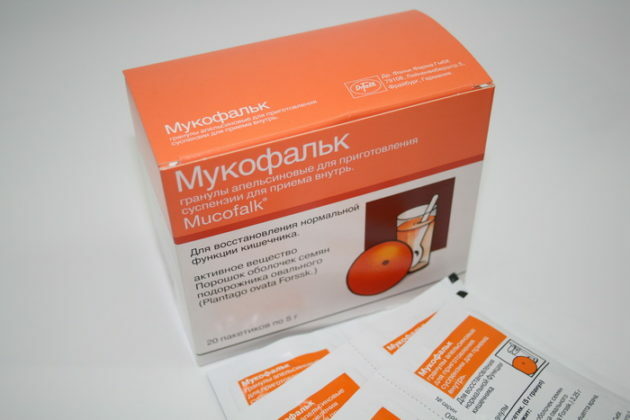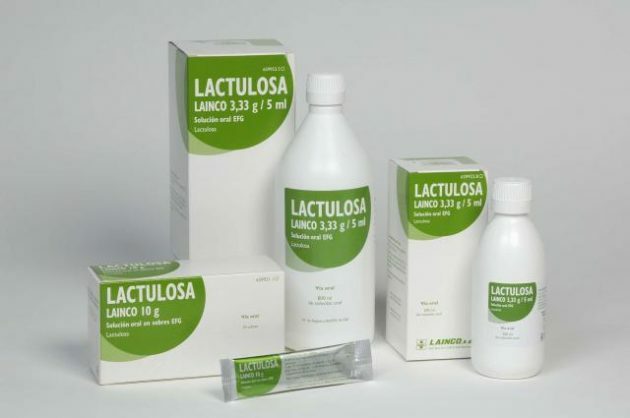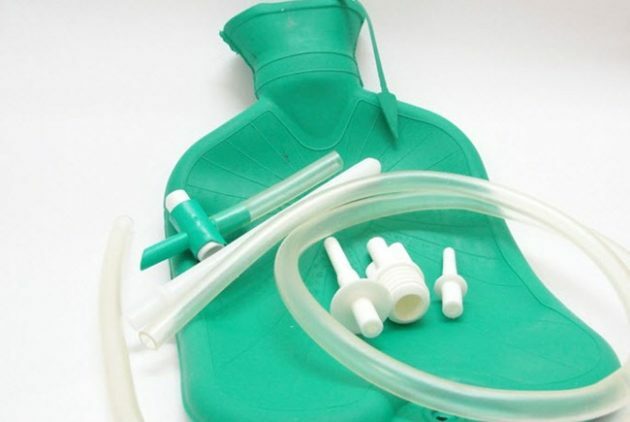Signs and symptoms of constipation in adults
The main symptoms of constipation are an underestimated percentage of fluid in the stool, a hard and rare stool.
For normal bowel movement, the amount of water in the stool should be approximately 70%, for the liquid - 95%.With constipation, the percentage of fluid content is 40% or less.
Symptoms of the disease in most cases are manifested in an increase in the period between bowel evacuations.
In simple cases, this is associated with a decrease in intestinal motility and difficulty in the passage of hardening feces, in complex cases with gastrointestinal diseases.
Causes of disease in healthy people
Contents:
- Causes of disease in healthy people
- Constipation is caused by diseases of the internal organs
- Identification pathology symptoms
- Therapies
diseases Among the many factors that can cause constipation, increasingly manifest themselves stress. Their consequences affect the nervous system as a whole, including the activity of intestinal peristalsis.
The low quality of foods consumed in food, often devoid of the amount of fiber required by the body, can have a negative effect on the process of passing food through the digestive tract.
Continued disregard of the urge to empty the intestines, caused by external circumstances, causes constipation symptoms in adults and children.
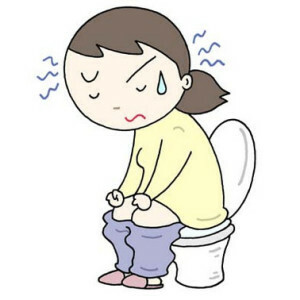
The most common cause of constipation is a decrease in the tone of the abdominal muscles due to sedentary lifestyle and categorically insufficient muscle activity.
Some products, such as quince, have an astringent effect. Abuse of alcohol and tobacco often leads to the appearance of constipation in healthy people.
If the food is rich in carbohydrates, there is not enough fluid and fiber, the probability of constipation is very high.
Excessive laxative medicines or traditional medicines with similar effects without significant medical evidence to this reduces the tone of the intestine and leads to the emergence of constipation.
Failure mode of the day can lead to constipation, as the body tends to adapt the motor activity of the intestine to empty at a particular time.
Furthermore, insufficient physical activity, and postural disorders irrational choice of food in a long time may lead to gastrointestinal disease that causes chronic constipation.
But most often constipation in healthy people causes excessive food with refined products, canned food and meat semi-finished products.
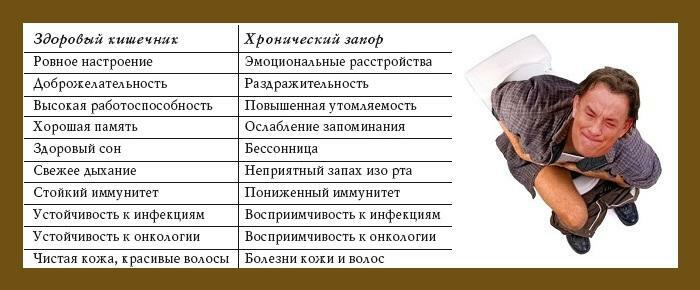
digestible sugars contained in bakery products, and the high content of salt and fat in processed meat and fish cause significant disruptions to the digestive system.
But if the patient is relatively correct way of life, particular attention should be paid to health by frequent cases of constipation, as this may be a sign of previously undiagnosed or arising pathology.
Constipation caused by internal diseases
Constipation may be a symptom of any gastrointestinal disease or occur as a side effect of medical medicines.
Gastrointestinal pathologies, accompanied by difficulty in bowel movements:
- dolichokolon;
- megacolon;
- dolichosigma;
- additional sigmoid loop;
- colonopath;
- transversoptosis;
- diverticulum of the sigmoid colon.
Dolihokolon is characterized by an increased length of the colon and is accompanied by a change in the muscular wall of the intestine.
In adults, it can occur due to excessive use of laxatives and enemas or because of metabolic disturbances in the walls of the thick intestine.
Megacolon is an expansion of the colon. The etiology of this disease is similar to the dolichocolon, if not associated with congenital pathologies.
Dolihosigma is a pathology expressed as an elongation of the sigmoid colon. Fecal masses, moving from the small intestine, accumulate here.
Due to the predominantly sedentary lifestyle, negative changes in this department are generated by the processes of fermentation and putrefaction that occur in the intestine.
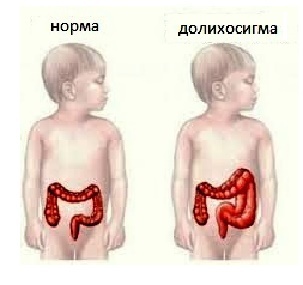
Additional loops of the sigmoid colon, usually 2-3, arise because of its anomalous length. This pathology leads to strong and frequent constipation.
Colonoptosis occurs due to the weakness of the mesentery, which leads to the omission of the colon. Constipation is a consequence of the slowing of the intestinal peristalsis, which appears because of this ailment.
Transversoptosis appears as a consequence of curvature of the spine. With this disease, there is a decrease in the transverse region of the colon to the pelvic region.
Spikes and innervation disorders that occur while this lead to the formation of constipation.
Diverticulosis of the sigmoid colon is a hernia-like protrusion of the intestinal wall, which arises as a result of dystrophic processes occurring in the thick intestine.
The appearance of pathology contributes to the high pressure of intestinal gases.
Water reabsorption occurring in the large intestine may be intensified by the action of medications, which leads to constipation.
In addition, drugs can reduce the rate of passage of stool, affecting the tone of the intestine, which at normal intensity of water absorption through the walls of the intestine is also the cause of constipation.
Detection of symptoms of pathology
If the patient has a delayed bowel movement more than 2-3 days or if the feces are very hard and resemble peas, then we can say that he develops constipation.
The disease usually manifests itself by several basic and concomitant symptoms.
The main features are:
- form of stool;
- period between stools;
- intensity of effort taken to empty the intestines;
- increased gas production;
- sensation of fullness of the intestine even after emptying;
- bloating and a feeling of heaviness in the abdomen.
The shape of stools characteristic of constipation can vary depending on the percentage of moisture contained in them from such sausage to individual hard beads.
The period between bowel movements is a sign subject to individual variability, and for each individual organism it is purely individual.
But the generalized norm is considered the evacuation of the intestine from three times a day to once in three days.
The normal defecation process takes place without significant effort. If it is difficult and accompanied by other signs, then it is possible to diagnose, with a high degree of confidence, the presence of constipation.
Video:
It is important to remember that you should not put much effort( excessive straining) to overcome constipation.
Associated signs of constipation are manifested in the form of abdominal pain, nausea and vomiting, fever, impurities of blood and mucus in the stool, heartburn and reduced appetite.
Intoxication of the body, which occurs with chronic constipation, leads to sleep disorders, general malaise, increased irritability and headaches.
Repeated constipation is a serious enough reason to identify the cause of their appearance.
To accurately establish the cause of the disease, conduct laboratory tests of blood samples, feces and urine, microbacterial examination of stool.
In addition, ultrasound examination of the intestine, X-ray examination, gastroscopy and colonoscopy are performed.
Ignoring the symptoms of constipation and untimely or illiterate treatment can often lead to unpleasant consequences that lead to the development of more serious pathologies.
Methods of treatment of the disease
Symptoms and treatment depend on the causes that caused the pathology. With constipation caused by stress, violation of the daily routine, not by the optimal choice of food or other situational reasons, it is enough to take a laxative, switch to a special diet, increase the amount of fluid taken inside.
If these measures are insufficient, then an additional enema is used.
Excluding from the diet carbonated drinks, strong tea, coffee and increasing the amount of greenery and cereals, regularly practicing physical exercises and observing the regime of the day, you can avoid repetition of unpleasant symptoms associated with this pathology.
Video:
Should not be tolerated by the symptoms of taking laxatives, because the long-term effects of these drugs can significantly reduce the tone of the muscles responsible for intestinal peristalsis.
In case of chronic constipation caused by pathologies, these measures may not be enough - medical intervention will be required.
Symptomatic treatment medication:
- water-retaining drugs that promote liquefaction of feces;
- stimulators of the motility of the large intestine;
- vegetable oils;
- plentiful drink;
- enema.
To prevent recurrent manifestations of the disease, a diet is prescribed, which includes sufficient amounts of fiber and liquid, increased physical activity and compliance with the day regimen.
Methods of treatment and prevention of chronic constipation include physiotherapy procedures. In complicated cases resort to surgical intervention.
If the difficulties of defecation are caused by the side effects of drugs, a course of treatment can be adjusted to prevent them and a special diet should be used after consultation with the attending physician.
Prevention of postoperative constipation usually amounts to a copious drink, a special diet and the intake of laxatives prescribed after consultation with the patient's surgeon.
To prevent the development of this complex disease, you must change your lifestyle.
Motor activity( gymnastics in the mornings and exercise during the day), massage, proper nutrition and the exclusion of bad habits will save the GIT for many years.

